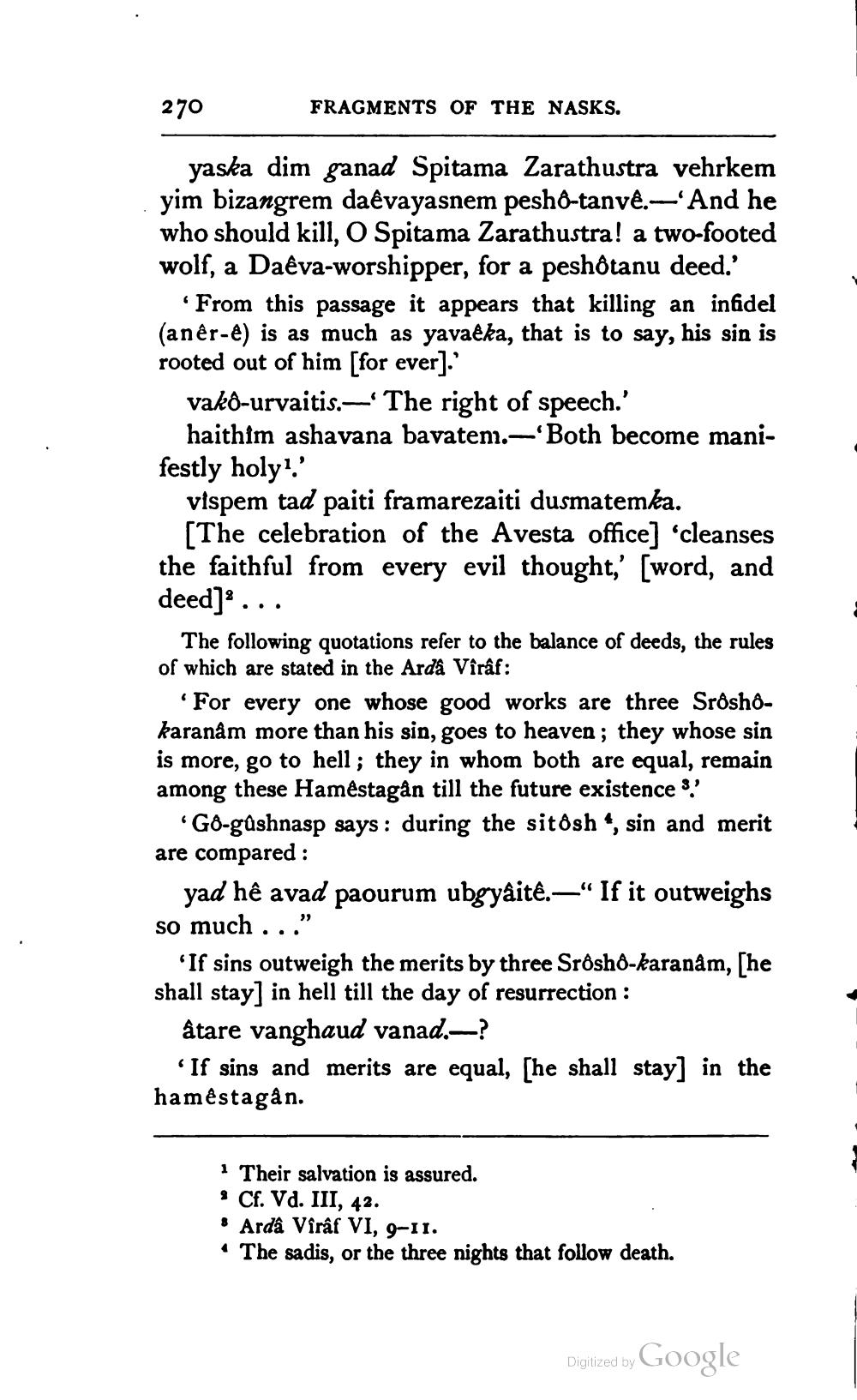________________
270
FRAGMENTS OF THE NASKS.
yaska dim ganad Spitama Zarathustra vehrkem yim bizangrem daêvayasnem peshô-tanvê.-'And he who should kill, O Spitama Zarathustra! a two-footed wolf, a Daêva-worshipper, for a peshôtanu deed.'
From this passage it appears that killing an infidel (anêr-&) is as much as yavaēka, that is to say, his sin is rooted out of him [for ever].'
vakð-urvaitis.—The right of speech.'
haithim ashavana bavaten.— Both become manifestly holy?'
vispem tad paiti framarezaiti dusmatemka.
[The celebration of the Avesta office] 'cleanses the faithful from every evil thought,' [word, and deed] ...
The following quotations refer to the balance of deeds, the rules of which are stated in the Ardå Vîrâf:
For every one whose good works are three Srðshókaranám more than his sin, goes to heaven; they whose sin is more, go to hell; they in whom both are equal, remain among these Hamėstagån till the future existence :
Go-gushnasp says: during the sitôsh “, sin and merit are compared :
yad hê avad paourum ubgyaitê.—“ If it outweighs so much ..."
'If sins outweigh the merits by three Srðshó-karanâm, [he shall stay] in hell till the day of resurrection :
åtare vanghaud vanad.-?
"If sins and merits are equal, she shall stay] in the haméstagån.
1 Their salvation is assured.
Cf. Vd. III, 42. 8 Ardà Viráf VI, 9-11. · The sadis, or the three nights that follow death.
Digized by Google




